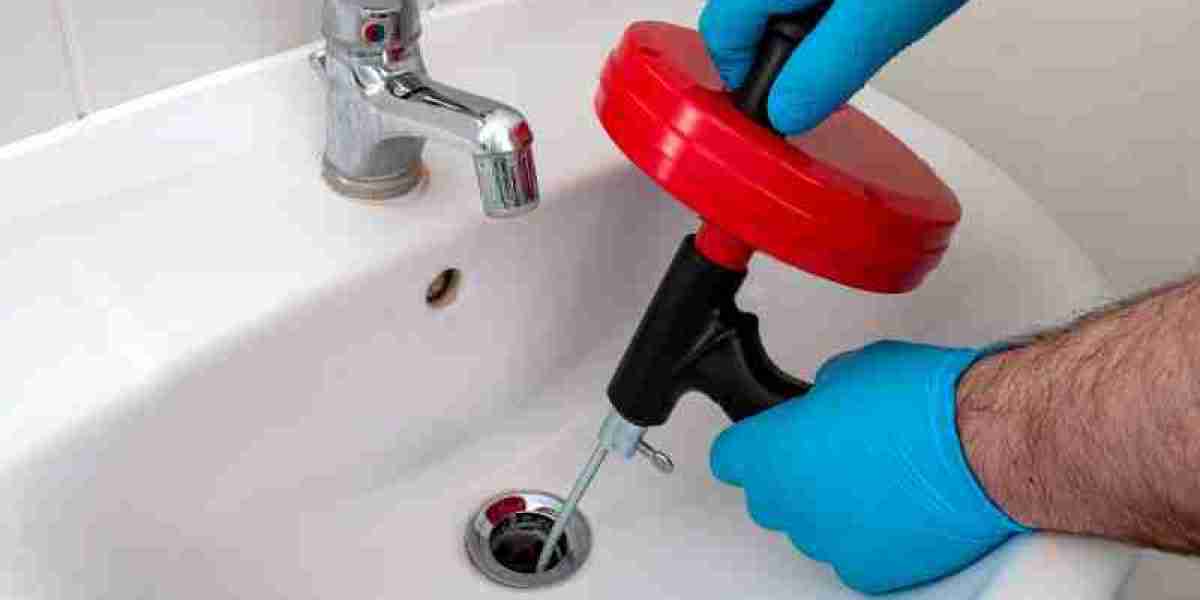Drain cleaning is an often-overlooked but crucial part of home maintenance. Over time, debris such as food, grease, hair, soap scum, and mineral buildup can clog your drains, leading to slow drainage, unpleasant odors, and potential plumbing problems. Regular drain cleaning helps keep your plumbing system functioning properly, prevents costly repairs, and ensures a clean, healthy environment in your home.
Why Drain Cleaning Is Important
Prevents Blockages and Clogs
Drains naturally accumulate materials like hair, grease, food scraps, and soap residue, which can build up and create blockages. If left unchecked, these blockages can slow down drainage and eventually cause complete obstructions. Regular drain cleaning removes buildup before it becomes a major problem.Reduces Unpleasant Odors
Stagnant water in clogged drains can harbor decomposing organic material, producing foul smells that can spread throughout your home. Cleaning your drains regularly helps to eliminate the source of these odors, maintaining a fresher living environment.Promotes a Healthier Home
A clogged drain is a breeding ground for bacteria, mold, and mildew, which can negatively affect your home's air quality and contribute to health issues. Regularly cleaning your drains helps to prevent the growth of harmful microorganisms, improving indoor air quality and reducing health risks.Prevents Plumbing Damage
Blockages and clogs place pressure on your pipes, which can lead to leaks, cracks, or even burst pipes in severe cases. By maintaining clean drains, you can prevent the damage caused by clogging and extend the life of your plumbing system.
Signs You Need Drain Cleaning
Certain signs indicate that it’s time to clean your drains:
- Slow Drainage: Water draining more slowly than usual is a common sign of a developing blockage. It could be a minor issue, or it could indicate a deeper problem.
- Foul Odors: A bad smell coming from the drains may indicate trapped organic material that is decomposing inside the pipes.
- Gurgling Sounds: If you hear gurgling or bubbling noises when water drains, this may be a sign of air trapped in the pipes due to a partial blockage.
- Frequent Clogs: If drains keep clogging even after attempting to clear them, it’s time for a professional inspection and cleaning.
DIY Drain Cleaning Methods
For minor clogs and regular maintenance, you can use several DIY methods to keep your drains clean:
Boiling Water
Pouring boiling water down the drain is a simple and effective way to dissolve grease and soap scum buildup, especially in kitchen sinks. This method works best for minor blockages and can be repeated periodically to maintain clear drains.Baking Soda and Vinegar
Baking soda and vinegar create a natural cleaning reaction that can break down debris and eliminate odors. Pour 1 cup of baking soda down the drain, followed by 1 cup of vinegar. Allow it to sit for 15-30 minutes before flushing with hot water.Plunger
A plunger can be effective in dislodging minor clogs in sinks, showers, and toilets. Make sure the plunger is tightly sealed over the drain and plunge it up and down several times to clear the obstruction.Drain Snake
A drain snake (also called a plumbing auger) is a flexible, long tool that can reach deeper into pipes to break up more stubborn clogs. Insert the snake into the drain, twist it to catch the clog, and pull it out to clear the blockage.
When to Call a Professional Plumber
While DIY methods are helpful for routine maintenance or minor blockages, some situations require professional help:
- Persistent Clogs: If clogs recur despite regular cleaning, there may be a deeper issue that requires professional attention.
- Major Blockages: Severe blockages deeper in the plumbing system may require specialized tools like hydro-jetting to clear them.
- Pipe Damage: If you notice leaking pipes, strange noises, or low water pressure, it's a sign of potential damage that may be caused by a long-standing blockage.
Tips for Preventing Drain Problems
Prevention is always better than dealing with clogs. Here are some tips to help keep your drains clear:
- Avoid Pouring Grease Down the Drain: Grease solidifies in pipes, leading to clogs. Always dispose of grease in the trash rather than washing it down the sink.
- Use Drain Screens: Install mesh or plastic screens over drains to catch hair, food scraps, and soap scum.
- Don’t Flush Non-Degradable Items: Avoid flushing wet wipes, paper towels, or hygiene products that can clog pipes.
- Regularly Clean Your Drains: Use natural cleaners like baking soda and vinegar, or pour hot water down the drain regularly to prevent buildup.
- Schedule Routine Inspections: Consider having your drains professionally cleaned every 1-2 years to keep your plumbing in good shape.
Conclusion
Drain cleaning is an essential part of home maintenance that keeps your plumbing system running smoothly. Regular cleaning helps prevent blockages, eliminate odors, reduce bacteria, and extend the life of your pipes. Whether you tackle minor clogs yourself or call a professional for more severe issues, regular drain cleaning can save you time, money, and hassle in the long run. Keep your drains clean to ensure a healthy, efficient plumbing system for your home.






